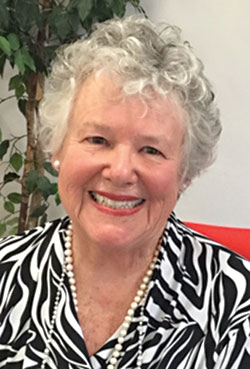
Part 1, Part 2, Part 3, Part 4, Part 5
URBANNA — The late Jack Mulligan of Urbanna was one of the most talented musicians I have ever known. He resonated with music wherever he walked.
He was a pianist that could play anything, by ear or by heart, from Beethoven’s “Moonlight Sonata” to Scott Joplin’s “Pineapple Rag.” He also could pick up on any tune that was sung and accompany anyone. All he needed was to sit down at a piano and the blessed music spilled forth.
To me, who studied piano in my youth and suffered through every piano lesson and still plunk the ivory keys like a beginner, Jack seemed like a living miracle. His fingers covered the keys with the grace of rolling butter. Who knew fingers could move so gracefully and create such joy? He turned any group into a party as soon as he sat down at a piano.
I first got to know Jack while he was playing the piano and leading a sing along at the old Urbanna Inn. He struck up a conversation during a break and introduced himself to me.
Jack appeared to me to have suffered some tragic event in his life, I never knew what, but he had the classic look of the “artiste” about him in the way he always wore an expression of grief … as if he knew some great sadness that he bore silently but that he could never share with you … a look that many artists have. Indeed, I have read that artists can never create anything worthwhile unless they have known some suffering of some sort which apparently triggers the muse.
Along with Jack’s musical talent, he was also a bright, well-educated man sensitive to the needs of others. Before retirement I believe he had spent his life in a career in the education of children.
Mulligan introduced Christ Church to a contemporary service that was open to the community that offered a user-friendly, non-denominational service. I and many others participated enthusiastically.
Jack’s contemporary service was known as “the 9:15,” a name that came about simply because it was a short, 45-minute service squeezed in between the early traditional services at 8:30 and 10:30 a.m.
The service that the then priest, the Rev. Scott Krejci, closed the traditional prayer books and hymnals and opened hearts and minds to receive the Lord’s message of love and forgiveness in today’s words and musical expression. It was a service that was meant to attract those uncomfortable with creeds and formal services of the past, yet emphasize the moral teachings of Jesus to love one’s neighbor and forgive those who have hurt you — two necessary attributes for happiness in life.
The service replaced the usual commercial communion “bread,” a white cardboard wafer so difficult to eat, let alone swallow, with a piece of freshly baked loaf of bread along with wine. Music ranged from old favorite hymns from Episcopal, Baptist and Methodist hymnbooks along with modern era music such as “Morning has Broken” and “Amazing Grace.” Our priest offered a homily that offered encouragement and hope for peace in the world.
Jack’ s musical ability attracted musicians from other churches, I recall two teens from other churches playing a violin and a trumpet and often they would offer us the gift of a classical piece to share with the congregation.
The service was popular and grew to the range of 60 to 80 in attendance, which began to overshadow the other services. One could sense the mounting displeasure.
Such a service offered in a traditional church was a bit like skating on thin ice. It became upsetting to the Old Guard by breaking traditions set in past centuries.
The next priest decided to bring an end to the pesky but popular “9:15.” Ending it would have to be done cleverly, however, rather in the crafty style of a politician that provides someone a new government benefit, which then causes inflation, which destroys the benefit.
It would have to be done rather like the old Aesop fox under the grapevine savoring the fruit but knowing he could not get the entire bunch of grapes all at once but rather, one grape at a time.
The first step in ending the unwanted service was to move it out of the sanctuary and into the parish building. The service immediately lost its feeling of religiosity. I felt we were at a PTA meeting rather than a church service due to the harsh overhead lighting, metal fold up chairs and the piano that had to be rolled to the front next to a make do altar where someone had placed a few candles and a Bible. We missed the beautiful candelabra light in the colonial church setting.
That move was the beginning of the end. At the annual summer picnic, the new priest announced the contemporary service would go on “summer vacation” and not restart until the fall. Jack was officially thanked for his services to the church.
I saw his face as he accepted the honor and realized at once he had no idea that the 9:15 was to be suspended for the summer. We all applauded his efforts but I saw his sad expression. He had worked hard to develop his contemporary service.
The 9:15 never started up in the fall. Jack later died of cancer. I never heard him play the piano again.
New ideas or ways of doing things will always be challenged by whatever is the establishment du jour. But change will always come about. I see change as the natural evolution of Christianity as, if religion is to survive, it must attend to the changing needs of the people.
My feeling is that all churches today would be wise to develop more than one type of service — traditional along with some form of interdenominational service that is open to the entire community. Those churches that are doing so are experiencing growth.
The wise priest strives to do the impossible. Meet the individual at the point where he is on his spiritual journey, as Jesus did, and not expect all individuals to fit into prescribed archaic programs that are no longer intellectually possible to many who were once raised in a Christian environment.
I remember today pioneer change agent Jack Mulligan who used his gift of music to open new doors in his church. They will eventually be opened. (Continued next week.)
© 2024



